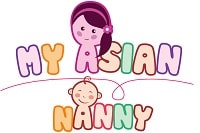Introduction to Asian Caregiving

In many Asian cultures, caregiving is more than just a responsibility—it is a deeply rooted tradition that reflects the importance of family connections and respect for elders. Culture shapes caregiving practices in Asian communities, influencing how families approach the care of older adults and the aging process. The concept of filial piety, which emphasizes honoring and caring for one’s parents and ancestors, is central to family caregiving in Asian communities. According to the Pew Research Center, about a quarter of Asian Americans live in multigenerational households, underscoring the strong commitment to supporting loved ones at every stage of life. Age plays a significant role in caregiving, as understanding the aging process is essential for meeting the needs of older family members. Family caregivers play a vital role in maintaining the health and well-being of their elders, often providing both physical and emotional support. Asian caregivers, who come from diverse backgrounds such as Chinese, Korean, Filipino, Thai, and Vietnamese communities, bring unique cultural values, language skills, and caregiving traditions that benefit families seeking culturally sensitive care. This dedication to family caregiving not only strengthens family bonds but also upholds the cultural values that are cherished across generations. Providing care that respects cultural traditions is especially important for older adults, ensuring their dignity and comfort. The unique needs of Asian elders and families require personalized approaches that honor cultural differences. In Asian American communities, the importance of caring for parents and elders is a reflection of deep respect and a desire to ensure that loved ones live with dignity and comfort. For example, Chinese caregivers who speak Mandarin or Cantonese offer valuable language and cultural skills that enhance the caregiving experience. Immigrant families often face unique caregiving dynamics, including language barriers and navigating cultural expectations, which shape how care is provided within the family.
Understanding Caregiving Needs
Understanding the unique caregiving needs of Asian American families is essential for delivering truly compassionate care. According to the Pew Research Center, about a quarter of Asian Americans live in multigenerational households, which often means that family members take on significant caregiving responsibilities. These family caregivers are deeply influenced by cultural values such as filial piety, which emphasizes respect and care for elders. However, balancing caregiving with their own physical and mental health can be challenging, making self care and support from others crucial. Recognizing cultural differences and the specific needs of care receivers allows caregivers and healthcare providers to offer culturally competent services that honor the dignity and well-being of seniors. By understanding the importance of these cultural traditions and the challenges faced by Asian American families, we can work together to provide compassionate care that supports both caregivers and their loved ones.
The Role of Asian Caregivers
Asian caregivers, whether they are family members or professionals, play a vital role in supporting the health and happiness of their loved ones. Their deep understanding of cultural values and traditions helps create a caregiving experience that is both respectful and meaningful. However, these caregivers often encounter unique challenges, such as language barriers and cultural taboos around discussing certain health issues. These obstacles can make it difficult to provide the best possible care. Executive directors and leaders in caregiving organizations stress the importance of ongoing training and education to help caregivers navigate these challenges. By equipping Asian caregivers with the right tools and knowledge, we empower them to provide high-quality, culturally competent care that enhances the well-being of their families and communities.
Elderly Care Services for Seniors

Elderly Caregivers
Finding the right caregiver for an older family member can be a challenging task. Many families struggle to ensure their loved ones receive high-quality, compassionate care when they are not around. It is important to remember that caregiving is not the responsibility of just one person; often, multiple family members and support systems are involved in meeting the needs of older adults. Reliable caregiver services are hard to find, especially those that focus on providing care that is personalized and attentive. This can lead to stress and unnecessary concerns for the family, eventually impacting the well-being of their loved ones.
Our Solution
My Asian Nanny is a business dedicated to serving the caregiving needs of the community, with a focus on the unique needs of Asian American and Arab American elders.
At My Asian Nanny, we specialize in providing expert caregiver services tailored to the needs of seniors. Our team of caregivers is thoroughly vetted, professional, and dedicated to delivering high-quality senior care. Our goal is to offer exceptional in-home care that ensures comfort and security for your family members.
Why Choose Our Services
Our elderly caregivers are adept in multiple dialects, including Chinese dialects such as Mandarin and Cantonese, as well as Taiwanese and more. They understand the importance of Chinese culture, traditions, and language in providing meaningful care, especially within Chinese and broader Asian communities. Caregivers are also attentive to food preferences and dietary needs that reflect the cultural backgrounds of seniors, ensuring meals are both familiar and comforting. They provide comfort, care, and companionship through various everyday activities, such as engaging in conversation, assisting with mobility, shopping, and accompanying seniors to medical appointments and other social activities.
Overcoming Language Barriers
Language barriers can present significant challenges for Asian family caregivers, especially when it comes to communicating with healthcare providers or understanding complex medical information. Many Asian Americans, particularly seniors, may not be fluent in English, and about two thirds of Asian seniors require assistance translating between languages. This can make it difficult for family caregivers to access important resources and services, potentially impacting the well-being of care receivers. To address these challenges, it is crucial to offer culturally competent services, such as interpreters and translated materials, that help bridge the language gap. By ensuring that caregivers and their loved ones can communicate effectively with medical professionals and service providers, families can better navigate the healthcare system and secure the support they need. Language-accessible care not only eases the burden on family caregivers but also promotes the overall health and happiness of seniors in Asian American communities.
Mental Health and Caregiving
Caring for a loved one can be emotionally demanding, and mental health is a critical aspect of the caregiving experience. In many Asian cultures, however, there are cultural taboos and stigma surrounding mental health issues, which can make it difficult for family caregivers to seek help or talk openly about their struggles. The pressure to prioritize family caregiving over personal well-being can lead to stress, burnout, and even a decline in physical health. These factors can increase the risk of mental health issues among caregivers, as cultural stigma and caregiving pressures may prevent them from seeking timely support. It is important for family caregivers to recognize the value of self care and to access resources and services that support their mental health. By breaking down cultural barriers and encouraging open conversations about mental health, caregivers can find the support they need to manage the challenges of caregiving. Prioritizing both mental and physical health allows family caregivers to provide compassionate care to their loved ones while maintaining their own well-being.
Training and Education
Comprehensive training and education are essential for caregivers to provide high-quality, culturally competent care. This training should go beyond basic caregiving skills to include an understanding of cultural values, traditions, and practical skills like meal preparation that respect the preferences of Asian American seniors. Organizations such as the Asian American Federation offer specialized programs to help caregivers build confidence and expertise in their roles. By investing in ongoing education, caregivers are better equipped to meet the health and cultural needs of those they care for, ultimately leading to improved health outcomes and a higher standard of care for families.
Benefits of Our Caregiver Services
- Home Care Services: Assistance with daily living activities, including meal preparation, housekeeping, and personal hygiene.
- Companion Care: Providing companionship and emotional support through engaging activities and meaningful interactions.
- Home Health Aide: Professional aides who assist with medical needs, mobility, and daily health management.
- Live-in Caregiver: Offering 24/7 support and supervision for continuous care and peace of mind.
- Home Nursing: Skilled nursing services for specialized medical care within the comfort of your home.
By choosing our services, you ensure the well-being and happiness of your elderly family members, allowing them to live with dignity and comfort.
Caregiving Resources
A wealth of resources is available to support family caregivers in the Asian American community. From online platforms and local support groups to community organizations like the Asian American Federation and the National Asian Pacific Center on Aging, families can find information, advocacy, and practical assistance tailored to their needs. Many healthcare providers also offer valuable services such as home visits and respite care, helping families balance caregiving with other aspects of their lives. By seeking out these resources, family caregivers can access the support they need to care for their loved ones while maintaining their own well-being, ensuring that both caregivers and care receivers thrive.
Caregiving Tips
Providing compassionate care for a loved one involves more than just meeting their daily needs—it also means taking care of yourself and understanding the unique cultural context of your family. Family caregivers often care for both children and older adults, highlighting the multigenerational aspect of caregiving. It is important to consider the unique needs of each family member, including mothers, children, and elders, to provide effective and respectful care. Family caregivers should remember to prioritize self care and seek support from family members, friends, or professional services when needed. Being aware of cultural differences, such as dietary preferences or traditional meal preparation methods, can help caregivers offer more personalized and respectful care. Understanding language barriers and seeking out resources in your preferred language can also make navigating healthcare systems easier. Health research can provide valuable insights and resources for family caregivers, helping them address challenges and improve care for their loved ones. By embracing cultural understanding and staying connected to available support networks, family caregivers can ensure the well-being of their loved ones while also maintaining their own health and happiness. Remember, seeking help is a sign of strength, and accessing the right resources and services can make a meaningful difference in the caregiving journey.
Contact Us
If you need a professional, compassionate caregiver for your elderly family member, contact us today to get started on finding the help you seek. Our team is here to provide the best in-home care services for your family.
